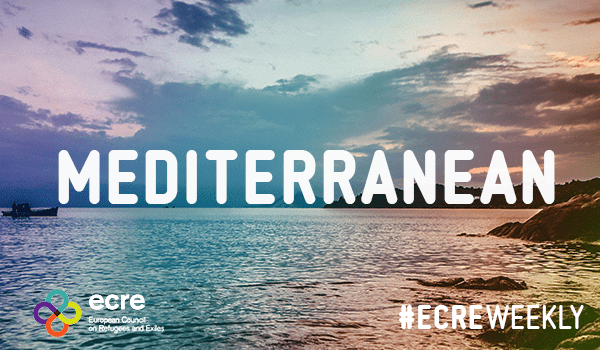September has seen almost 200 drownings at the Mediterranean Sea within only a few days. Authorities delay rescue missions and capacities remain low with several rescue vessels blocked in ports. The Italian government plans to reduce fines for NGOs that violate sailing bans. While the European Pact on Migration and Asylum highlights the need to stop criminalisation of search and rescue missions, it leaves the door open for business as usual.
Almost 200 deaths off the Libyan coast in only a few days adds to a soaring death toll for people crossing the Mediterranean. Between 14 and 26 September, the NGO hotline Alarmphone was contacted by hundreds of people in distress who were seeking rescue but for many help came too late. During the most lethal shipwreck recorded this year, 111 people drowned on September 21. Only nine people survived, rescued by fishermen. In at least two other incidents fishermen saved more than 150 people from drowning at the central Mediterranean.
Alarmphone reports that in several cases authorities had refused to immediately start search and rescue operations when alerted about people in distress. Civilian search and rescue capacities are limited with several vessels remaining blocked at ports. On 24 September, Italian maritime authorities denied two members of the Mare Jonio crew access to the search and rescue vessel which was about to depart the Port of Pozallo, Sizily. The ship has been blocked in the port since then. Meanwhile, the Alan Kurdi is still anchored in Sardinia. By Saturday, all survivors had finally disembarked after undergoing a lengthy registration process. However, Italian authorities have denied the ship permission for departure to Marseille where a change of the crew was planned. Instead they were ordered to undergo a 14-day quarantine.
The Italian government’s cabinet of ministers is about to examine a decree that would reduce the fine schemes for civilian rescue operations. As of now, sea rescue organisations entering Italian waters without authorised permission risk to be fined up to 1 million euros. With the new decree, the fine is to be reduced to 10,000-50,000 euros.
The New Pact on Migration and Asylum says that humanitarian assistance and particularly NGOs carrying out search and rescue missions are not to be criminalised as this would breach international and EU law. However, Marta Gionco, Advocacy Officer at PICUM, notes that “The Guidance only invites not to criminalise acts which are ‘mandated by law’, which are very different from acts ‘permitted by law’. Activities like providing food, shelter, car lifts or information, all remain excluded – in particular when they’re not carried out by an official NGO which is ‘mandated’ to carry out such activities. The almost exclusive focus on search and rescue also risks leaving out activities at land and activities which are not directly life-saving.” Further she adds “search and rescue operations are only considered legitimate when they ‘observe the instructions received from the coordinating authority’ and while ‘complying with the relevant legal framework’, which leaves the door open to prosecution of NGOs under (false) accusations of breaching national legislation”.
Between 15 and 28 of September, almost 1,000 people intercepted at sea were returned to Libya. A recent report by Amnesty International adds to the mounting evidence of human rights violations in the country where people returned are frequently transferred to unofficial detention centres from where they then disappear.
In a report published on 2 October, the UN Human Rights Office calls for urgent action to address the “cycle of violence” migrants departing from Libya to Europe face – in Libya, at Sea, and also upon arrival in Europe.
Between September 20 and September 25, Algerian authorities reportedly stopped 755 individuals from leaving to Europe. Yet, 1,052 Algerian nationals arrived in Italy in the first three weeks of the month. From Tunisia arrivals surge, too. More than 40 % of those who have arrived at Italian shores in the past twelve months were Tunisian nationals.
For further information:
- ECRE, Med: More Tragedies Unfolding at Sea while Italy Confines Sea-Watch 4 and EU Member States Remain Unwilling to Coordinate Disembarkation, September 2020
- ECRE, Med: New Stand-off Developing as Survivors From the Etienne Have Finally Disembarked, September 2020
- ECRE, Med: the Moonbird Grounded Amid Crisis on the Med, Etienne Stand-off Continues, Horrifying Conditions in Maltese Detention Centres, September 2020
- ECRE, MED: 353 People Disembarked in Italy, 27 Remain Stranded off Malta, Increase of Arrivals in Lampedusa, September 2020
- ECRE, Med: Series of Deadly Shipwrecks While Civilian Search and Rescue Fleet is Blocked, August 2020
- ECRE, Med: 65 Lives at Risk, Inaction Continues, Evidence Culminates, NGOs Blocked, July 2020
- ECRE, Med: 118 Rescued, 211 into Quarantine while Italy Faces Legal Action for Pull-backs, June 2020
- ECRE, NGOs Resume Rescues amid Mounting Death Toll and Continued Pull-Backs, June 2020
- ECRE, Med: Malta Under-Fire for Continued Rights Violations but PM Dodges Homicide Charges, June 2020
- ECRE, Med: Continued Violations Topped with Dodgy Deals, May 2020
- ECRE, Med: New Evidence of Malta’s Deadly Strategies, May 2020
- ECRE, Med: 78 to quarantine on Italian Ship, 163 still Stranded amid Spike in Departures and Depleted Rescue Capacities, May 2020
- ECRE, Med: Hundreds Remain Stranded at Sea as Ports are Still Closed, Solidarity Remains Lacking and Interceptions Continue, May 2020
- ECRE, Med: Former Maltese Official Admits Push-Back while another 62 People are Left Stranded, 08 May 2020
- ECRE, Med: 180 Quarantined on Italian Ship while NGO takes Legal Actions against Maltese Decision-Makers, April 2020
- ECRE, Med: 12 Left to Die and 182 Stranded as EU States Refuse Rescue, April 2020
- ECRE, Med: 150 Stranded at Sea as Malta and Italy Declare Ports “unsafe”, April 2020
- ECRE, Med: IRINI Ships will Not Search but Rescue – Civilian Search and Rescue Vessel Back at Sea, April 2020
Photo: ECRE

